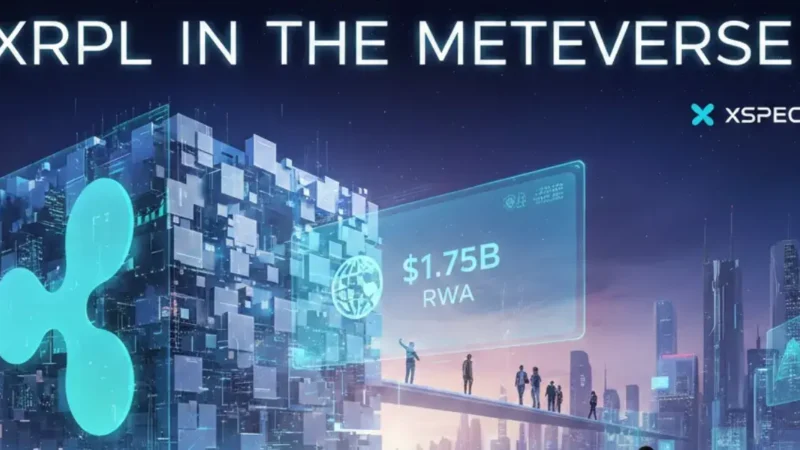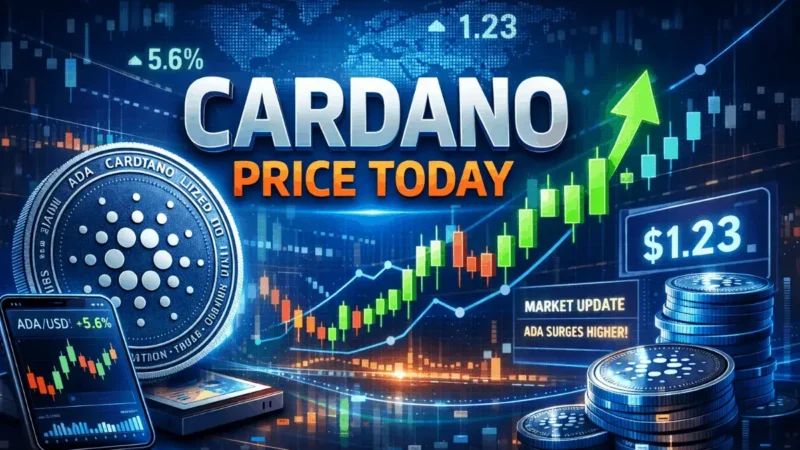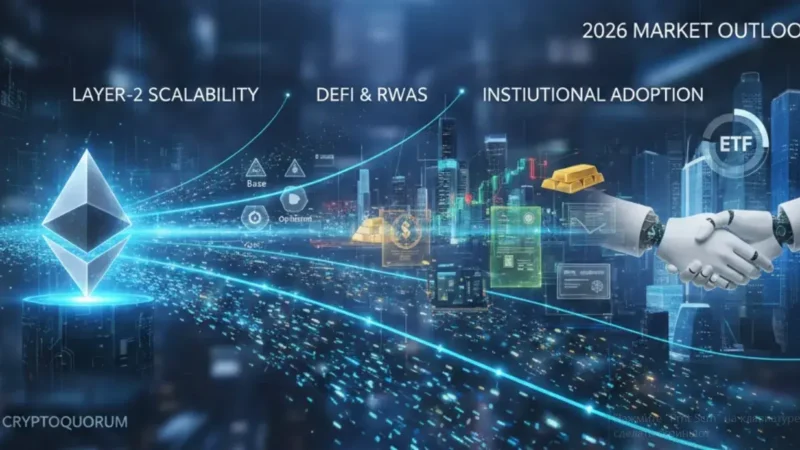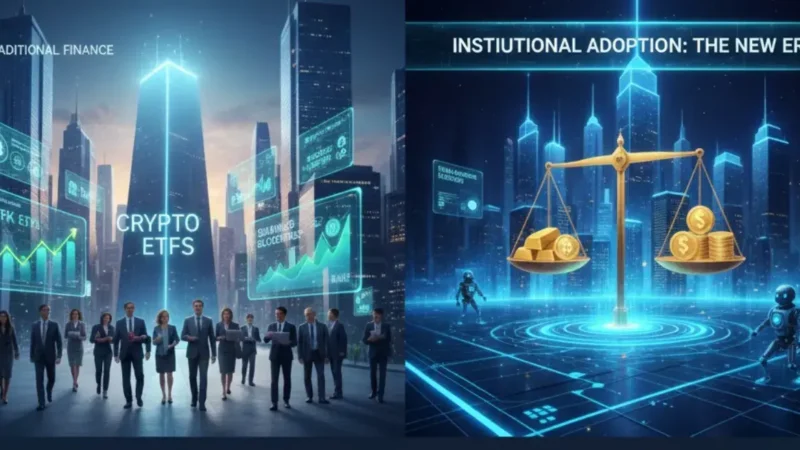The Brewing Storm: Robert Kiyosaki’s Stark Warning on Economic Civil War and the Imperative of Sound Money
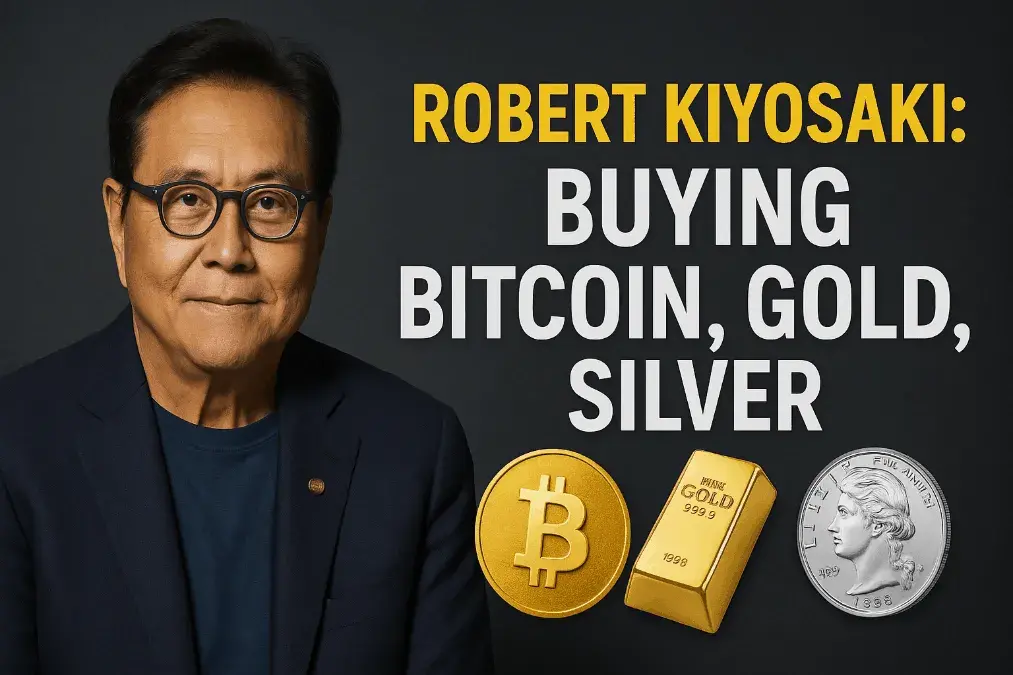
Robert Kiyosaki, the highly influential author of the perennial bestseller “Rich Dad Poor Dad,” has once again ignited intense global discussion with a profoundly unsettling declaration: “the civil war has already begun.” This isn’t a call to arms in the traditional sense, but a stark warning of a systemic societal unraveling driven by insidious economic decay and deepening social fragmentation. For Kiyosaki, the recent surge in violent incidents across the United States and other nations are not random acts of unrest; they are profound signals of a looming, systemic collapse of the traditional financial system, a crisis from which he believes individuals must actively seek refuge.
Kiyosaki’s message resonates deeply with a growing segment of the population disillusioned by the established financial order. His core critique is leveled squarely at central banks, which he vehemently accuses of actively devaluing public wealth through rampant, inflationary money printing. This “fake money,” as he often labels it, is the very instrument eroding the purchasing power of ordinary citizens, silently confiscating their hard-earned savings and widening the chasm of wealth inequality. In the face of this perceived financial warfare, Kiyosaki offers a clear, actionable solution: a strategic pivot towards tangible assets like gold and silver, and the digital frontier of Bitcoin. For him, Buying Bitcoin, alongside precious metals, is not merely an investment strategy, but an act of financial self-preservation in an era of unprecedented monetary instability.
The Fourth Turning: A Cyclical Crisis Unfolding
Kiyosaki frequently frames his warnings within the context of the “Fourth Turning” theory, a cyclical concept popularized by historians William Strauss and Neil Howe. This theory posits that Western societies move through recurring generational cycles, each approximately 80 years in length, culminating in a period of profound crisis and societal restructuring. Previous “Fourth Turnings” in American history include the American Revolution, the Civil War, and the Great Depression intertwined with World War II. Kiyosaki argues that the current era perfectly aligns with the characteristics of a Fourth Turning – a period marked by escalating social division, institutional distrust, and economic upheaval – destined to culminate in a fundamental reshaping of society’s rules and structures.
This perspective lends a historical weight to his urgent appeals. He views the current economic landscape, characterized by unprecedented levels of national debt, persistent inflation, and aggressive quantitative easing policies by central banks, as the inevitable consequence of decades of financial mismanagement. The “Fourth Turning” framework suggests that these are not isolated events but interconnected symptoms of a larger, systemic crisis, forcing a reckoning with the very foundations of our financial and social systems. For those seeking to navigate this turbulent period, understanding the historical context, as Kiyosaki suggests, becomes paramount.
The Central Bank Conundrum: Devaluing Wealth Through “Fake Money”
At the heart of Kiyosaki’s argument is his scathing indictment of central banks and their practice of printing vast sums of fiat currency. He contends that this process, often referred to as quantitative easing (QE), is nothing short of “institutional theft.” When central banks inject trillions of new dollars into the financial system, they effectively dilute the value of existing currency. This inflationary pressure disproportionately impacts those who hold their wealth in traditional savings accounts or rely on fixed incomes, as their purchasing power erodes with each passing month.
The Federal Reserve, like other central banks globally, aims for a target inflation rate, typically around 2%. However, in recent years, inflation has often surged past this target, raising concerns about its long-term impact on economic stability and wealth distribution. While proponents of QE argue it stimulates economic activity and prevents deflation, Kiyosaki and like-minded critics highlight its adverse effects on the broader populace. They argue that this perpetual money printing benefits the wealthy who own appreciating assets (like stocks and real estate), while simultaneously penalizing savers and those dependent on wages, thereby exacerbating wealth inequality. This ongoing debasement of currency, according to Kiyosaki, is a primary driver of the economic decay that fuels societal unrest.
He frequently states that this era of bankers “ripping off the world” is coming to an end. The public’s diminishing trust in traditional financial institutions, fueled by a sense of being unfairly burdened by economic policies, creates fertile ground for Kiyosaki’s warnings to resonate. In this environment of eroding trust, the appeal of alternative, non-fiat assets becomes increasingly compelling.
Social Fragmentation: The Human Cost of Economic Decay
Kiyosaki’s assertion of a “civil war” goes beyond mere economic indicators. He links economic decay directly to social fragmentation, arguing that the widening gap between the rich and the poor, fueled by inflationary policies, creates deep societal fissures. When economic opportunity dwindles for a significant portion of the population, and the cost of living spirals upwards while wages stagnate, frustration and resentment boil over. This translates into increased social tension, distrust in governmental institutions, and ultimately, outbreaks of civil unrest.
The signs of social fragmentation are visible in various forms: political polarization, declining social cohesion, and an uptick in protests and demonstrations. While complex factors contribute to these societal shifts, Kiyosaki posits that economic disparity is a fundamental accelerant. When people feel economically insecure and believe the system is rigged against them, the social fabric weakens, making society more susceptible to conflict. This is the “civil war” he describes – not necessarily an armed conflict in the traditional sense, but a deep, pervasive division within society, driven by economic grievances and a feeling of disenfranchisement. Protecting one’s wealth, therefore, becomes not just a personal financial decision, but a strategic move in a fragmented society.
The Solution: Gold, Silver, and Buying Bitcoin
In response to this grim outlook, Kiyosaki consistently champions a diversified investment strategy centered on what he terms “sound money”: gold, silver, and Bitcoin. He sees these assets as crucial hedges against the impending collapse of the traditional financial system, offering a sanctuary for wealth in a world awash with “fake money.”
Gold: The Timeless Safe Haven
Gold has historically served as a reliable store of value, particularly during times of economic uncertainty and inflation. Its intrinsic scarcity and universal recognition as a valuable commodity make it a favored asset for wealth preservation. During market downturns, gold often demonstrates resilience, acting as a “safe-haven” asset when traditional equities falter. For instance, in the 2008 financial crisis, while many assets plummeted, gold exhibited a relatively smaller drawdown and subsequently saw a significant recovery. Central banks themselves continue to accumulate gold, signaling its enduring importance in times of instability. Kiyosaki refers to gold as “God’s money,” emphasizing its enduring and fundamental value beyond the manipulations of financial institutions.
Silver: The Volatile, Yet Potentially Explosive Asset
While sharing gold’s intrinsic value, silver is often characterized by higher volatility due to its dual role as both a monetary metal and an industrial commodity. This can lead to more significant price swings during economic cycles. However, Kiyosaki believes silver holds immense potential, predicting a substantial price increase in the coming years. Its industrial demand, particularly in emerging green technologies, combined with its monetary appeal, could position silver for explosive growth during periods of monetary debasement. Like gold, silver offers a tangible asset that cannot be printed into oblivion, offering a crucial alternative to fiat currencies. For Kiyosaki, both gold and silver are essential components of a sound money portfolio, providing diversification and a tangible hedge against inflation.
Bitcoin: The People’s Money for a Digital Age
Perhaps Kiyosaki’s most striking recommendation is for Buying Bitcoin. He unequivocally labels Bitcoin as “people’s money,” a direct counterpoint to the central banks’ “fake money.” His advocacy for Bitcoin stems from its core principles: decentralization and a finite supply. Unlike fiat currencies that can be printed endlessly by central authorities, Bitcoin has a hard cap of 21 million coins. This inherent scarcity, programmed into its very design, makes it a potent hedge against inflation.
Kiyosaki views Bitcoin as an escape hatch from the manipulation of central banks and governments. Its decentralized nature means no single entity can control its supply or devalue it at will. This autonomy is crucial in his eyes, offering individuals a path to financial sovereignty – the ability to “become your own bank.” He has made bold predictions for Bitcoin’s future, suggesting it could reach extraordinary valuations, even $1 million per coin within a decade. While acknowledging the speculative nature of such forecasts, Kiyosaki’s conviction in Bitcoin’s long-term prospects as a robust store of value is unwavering.
The arguments for Buying Bitcoin as an inflation hedge are compelling:
- Fixed Supply: The predetermined limit of 21 million Bitcoins inherently protects against inflation caused by supply expansion, unlike fiat currencies.
- Decentralization: Operating outside the control of any government or financial institution, Bitcoin is immune to political manipulation and arbitrary money printing.
- Global Accessibility: Bitcoin’s borderless nature makes it accessible to anyone with an internet connection, offering a hedge against localized economic downturns and currency devaluations.
- Digital Scarcity: Often referred to as “digital gold,” Bitcoin combines the scarcity of precious metals with the benefits of a digital asset, allowing for easy transfer and management.
While Bitcoin’s volatility is a commonly cited concern, its long-term trajectory, particularly during periods of economic uncertainty, has shown remarkable resilience. Kiyosaki’s consistent endorsement, coupled with the increasing institutional adoption of Bitcoin, underscores its growing recognition as a legitimate store of value and a viable alternative to traditional financial instruments. More and more individuals are considering Buying Bitcoin as a strategic move to secure their financial future.
Preparing for the Unprepared: A Call to Action
Kiyosaki’s warnings are not intended to instill panic, but rather to serve as a wake-up call for proactive financial preparedness. He urges individuals to move beyond traditional savings and investments that are vulnerable to central bank policies. His advice is a direct challenge to the conventional wisdom of “savers are losers,” suggesting that holding depreciating fiat currency is a losing proposition in the long run.
The call to action is clear: take control of your financial destiny by investing in assets that are independent of the traditional system’s inherent flaws. This means acquiring gold, silver, and actively considering Buying Bitcoin. It is about building a portfolio that can withstand the shocks of economic instability and the continued erosion of currency value.
Stay informed, read the latest crypto news in real time!
In a world increasingly characterized by economic uncertainty and social division, Robert Kiyosaki’s pronouncements may seem extreme to some. However, his consistent and vocal criticism of central bank policies, coupled with his unwavering advocacy for hard assets and digital currencies, resonates with a growing number of individuals who feel the tangible effects of inflation and economic inequality. Whether or not one fully subscribes to his “civil war” thesis, his core message—that individuals must take responsibility for their financial well-being and seek refuge in sound money—is a powerful reminder in an era of unprecedented change. For many, Buying Bitcoin and other alternative assets is becoming less of a speculative gamble and more of a prudent necessity.

